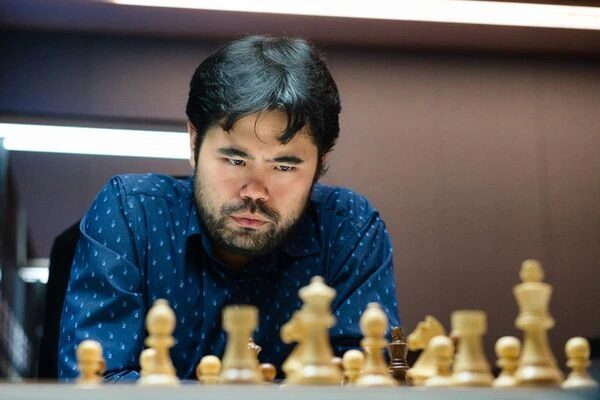For most of his career, Hikaru Nakamura has lived at the edge of brilliance. A five-time U.S. champion, one of the world’s best blitz players, a speed-chess icon who turned Twitch into a global chess classroom — he has built a career on thinking faster and sharper than almost anyone alive.
And yet, the internet loves to remind us of one peculiar statistic: that Hikaru Nakamura’s IQ is 102.
It’s a number that floats around Reddit threads, YouTube comments, and chess forums like an urban legend. People quote it as if it were a fun bit of trivia, a shocking contrast to his superhuman reflexes on the board. How can someone who calculates five moves ahead in a matter of seconds supposedly score just above average on an IQ test?
The answer, as usual, is more complicated — and far more interesting — than the number itself.
The Problem With “102”
That figure, as best anyone can tell, comes from an online IQ test Nakamura reportedly took for fun several years ago. The test was unsupervised, likely unstandardized, and designed more for entertainment than scientific assessment. It tells us roughly as much about his real intelligence as a BuzzFeed quiz tells us about which Harry Potter house we belong to.
Online IQ tests are notorious for their inconsistency. Some inflate scores; others lowball them. Factors like fatigue, distraction, or the arbitrary weight of verbal questions can skew results dramatically. In short: “102” is not a reliable measurement — just a screenshot that took on a life of its own.
What IQ Tests Miss
Even if the number were accurate, it wouldn’t mean much in the world Nakamura inhabits. IQ tests measure general cognitive ability — problem-solving, memory, logical reasoning. But chess at the elite level draws on a different cocktail of traits: pattern recognition honed through tens of thousands of hours, emotional control under time pressure, the ability to switch between intuition and calculation in milliseconds.
Nakamura’s genius lies not in abstract reasoning alone, but in applied cognition — the kind that happens when instinct meets preparation. Watch him play bullet chess and you’ll see the difference. His hands move before his mind seems to, yet every decision fits an invisible logic. That’s not something any standardized test can measure.
The Real Intelligence of a Grandmaster
Chess intelligence is specific, specialized, and brutally earned. Grandmasters spend years internalizing patterns, memorizing openings, and absorbing losses that would break most players. What looks like raw “IQ” from the outside is often the product of deep experience and deliberate training.
Nakamura, in particular, has built his edge on adaptability. When classical tournaments grew predictable, he reinvented himself online — mastering streaming, engaging millions, and turning digital platforms into a new stage for elite chess. That, too, is intelligence: the ability to recognize opportunity and evolve before others do.
A Number vs. a Narrative
So maybe the “102” legend persists because it’s neat, tidy, and human. It lets fans marvel at the paradox: the grandmaster genius who, on paper, tests “average.” But the reality is less a paradox and more a lesson — about how little a single number can capture the complexity of human talent.
If anything, the fascination says more about us than about Hikaru Nakamura. We crave shortcuts to understand greatness, a clean formula that explains why someone excels. IQ promises that simplicity — but chess, like life, rarely fits inside a test score.
Beyond the Score
Hikaru Nakamura doesn’t need a number to validate his mind. His moves, his instincts, his relentless creativity are proof enough. IQ tests may measure potential; chess measures performance. And few in history have performed quite like him.
In the end, the legend of Hikaru’s “102” isn’t a story about intelligence. It’s a story about the limits of measurement — and about how brilliance, in its truest form, often refuses to be quantified.

I’m a passionate board game enthusiast and a skilled player in chess, xiangqi and Go. Words for Attacking Chess since 2023. Ping me at Lichess for a game or chat.

